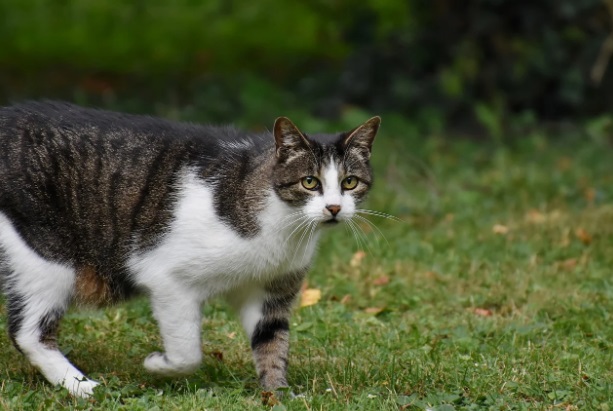Living in the countryside offers a scenic, serene environment that’s not only beneficial for humans but also for our feline friends. Cats in rural settings enjoy a larger, more varied environment to explore, hunt, and play, contributing to their physical fitness and mental well-being. However, this idyllic lifestyle comes with its own set of challenges, especially concerning health and safety. In this blog, we’ll take a closer look at how to ensure your countryside-dwelling cat stays healthy, happy, and safe. From navigating the risks of outdoor adventures to preventive care tips, join us as we explore the essentials of cat care in the countryside.
Recognize Symptoms
One of the first steps in ensuring your rural cat remains in top health is recognizing the early signs of potential health issues. Cats are adept at hiding discomfort or illness, so cat owners must be vigilant. Key symptoms to watch for include changes in appetite or water consumption, blood in kittens’ stool, excessive grooming or scratching, lethargy, vomiting or diarrhea, and changes in litter box habits. If you notice any of these signs, it’s best to schedule a visit with your veterinarian for a check-up. This proactive approach can prevent minor health concerns from escalating into more serious conditions.
Vaccinations and Parasite Control
Cats living in the countryside are exposed to a wide variety of potential diseases and parasites, making vaccinations and parasite control a crucial aspect of their care. Regular vaccinations protect cats from common feline diseases such as rabies, distemper, and upper respiratory infections. Along with vaccinations, deworming and flea/tick prevention are also essential for maintaining your cat’s health. Consult with your veterinarian to determine the best vaccination schedule and parasite control plan based on your cat’s lifestyle.
Monitoring Dietary Needs
A balanced and nutritious diet is fundamental for maintaining your countryside cat’s health and vitality. Cats are obligate carnivores, requiring a diet rich in high-quality protein. However, living in the countryside might tempt your cat with a variety of prey, which could lead to an unbalanced diet. It’s vital to ensure that their dietary needs are met with a consistent supply of commercially prepared cat food, which is specifically formulated to include all necessary nutrients, vitamins, and minerals.
Additionally, access to clean, fresh water at all times is crucial, especially for cats that spend a significant amount of time outdoors. Monitor your cat’s weight and eating habits closely; sudden changes could indicate health issues needing veterinary attention. Remember, a well-balanced diet is the key to preventing obesity-related diseases and ensuring your feline friend enjoys a long, healthy life exploring the countryside.
Safety Tips for Outdoor Cats
Ensuring the safety of outdoor cats, especially those living in the countryside, requires a proactive and attentive approach. The expansive outdoors, while full of adventure and exploration opportunities for your feline, also harbors risks such as predators, harmful plants, and the possibility of getting lost. Here are essential safety tips to keep your outdoor cat secure:
- Secure a Safe Perimeter: Consider installing cat fencing or a secure outdoor enclosure (catio) to protect your cat from predators and prevent them from wandering too far from home. These enclosures offer the best of both worlds—safe outdoor access and protection.
- Use a Collar with ID: A collar equipped with an ID tag containing your contact information is crucial if your cat wanders off and gets lost. Additionally, microchipping provides a permanent form of identification, ensuring a higher likelihood of reunion if your pet is found.
- Regular Health Check-ups: Outdoor cats should have regular vet check-ups to ensure they remain in good health and to promptly address any issues that outdoor life may bring about. Discuss with your veterinarian the frequency of these check-ups, taking into consideration your cat’s lifestyle and the specific risks in your area.
- Be Aware of Toxic Plants: Familiarize yourself with the types of plants in your area that could be toxic to cats. Ensure your garden or the cat’s outdoor environment doesn’t contain any plants harmful to your pet.
- Predator Awareness: Be aware of potential predators in your countryside area, such as coyotes, hawks, or other large carnivores. Predatory risks can be mitigated by keeping cats indoors during dawn, dusk, and overnight when predators are most active.
- Provide Shelter: Always ensure that your outdoor cat has access to a sheltered area where they can hide or take refuge during adverse weather conditions or when feeling threatened. A sturdy, insulated shelter can make a significant difference in your cat’s comfort and safety.
Caring for your cat in the countryside requires a proactive and vigilant approach, from recognizing symptoms to providing essential preventive healthcare measures. By following these tips, you can ensure that your feline friend enjoys a healthy, happy life exploring the great outdoors. Remember to consult with your veterinarian regularly and keep an eye out for any changes in behavior or health that may require attention.


